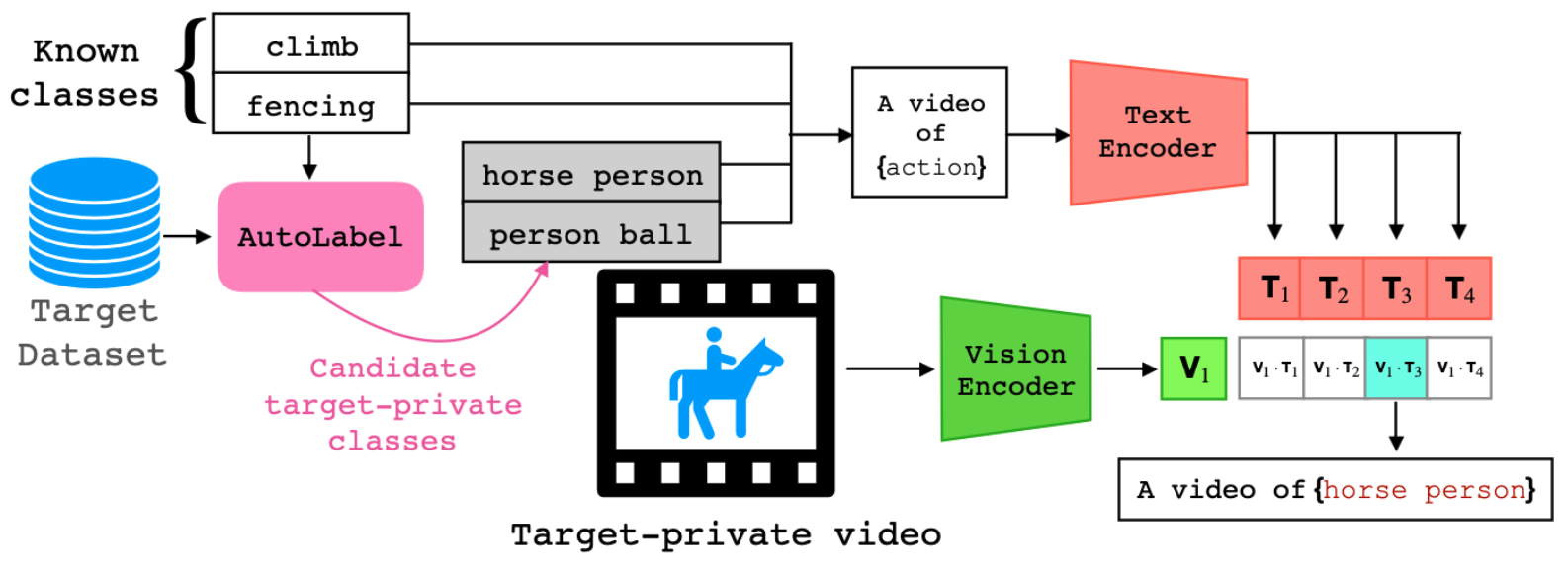AutoLabel: CLIP-based framework for Open-set Video Domain Adaptation
Open-set Unsupervised Video Domain Adaptation (OUVDA) deals with the task of adapting an action recognition model from a labelled source domain to an unlabelled target domain that contains "target-private" categories, which are present in the target but absent in the source. In this work we deviate from the prior work of training a specialized open-set classifier or weighted adversarial learning by proposing to use pre-trained Language and Vision Models (CLIP). The CLIP is well suited for OUVDA due to its rich representation and the zero-shot recognition capabilities. However, rejecting target-private instances with the CLIP's zero-shot protocol requires oracle knowledge about the target-private label names. To circumvent the impossibility of the knowledge of label names, we propose AutoLabel that automatically discovers and generates object-centric compositional candidate target-private class names. Despite its simplicity, we show that CLIP when equipped with AutoLabel can satisfactorily reject the target-private instances, thereby facilitating better alignment between the shared classes of the two domains. The code is available.
PDF Abstract CVPR 2023 PDF CVPR 2023 Abstract



